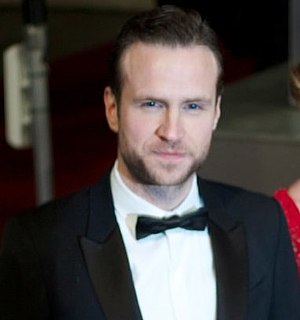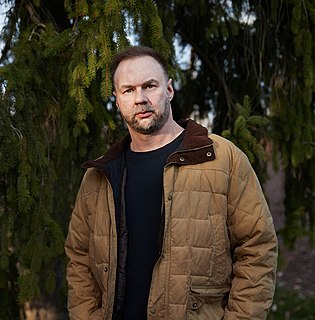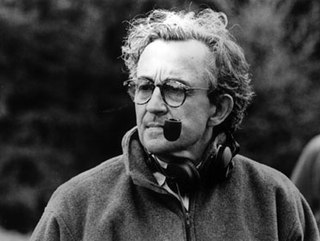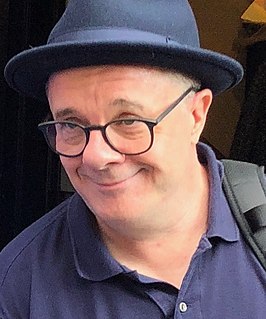A Quote by Rafe Spall
In any kind of comic scene you're going to perhaps push the boundaries of plausibility but as long as there is some semblance of logic I think as an audience you'll buy it and as an actor, when it comes to playing things like that, it gives you something to delve into. When I don't buy into a comic scene is the type of scenario where you'd just go: "Well, that would never happen."
Related Quotes
Whenever you're writing a book or creating a movie or a game, your first task is to get the reader/audience/player to suspend disbelief, to buy into the logic and boundaries of your world, even though those boundaries might include things like dragons and magic. To do that, you need long threads - of history and culture.
I don't think that any scene [in Pineapple Express] is word for word how you'd find it in the script. Some of it was much more loose than others. The last scene with me, Danny [McBride] and James [Franko] in the diner - there was never even a script for that scene. Usually we write something, but for that scene we literally wrote nothing.
For us it's always about making sure that there's substance, that things are well thought out, they're real, they're going to happen versus just haphazardly making Hollywood type announcements. So that's where we are there [on Comic-Con], just making sure that when we do something to say that it's something.
That scene that I have with Brad Pitt in Meet Joe Black is one of my favorite scenes that I've ever done. He's very modest. He's a real hardworking actor. I think he was going through something difficult at that time, and he never brought his personal stuff - not once! - on the set. He was a real pro. I remember doing that scene, and as I was acting, I thought, "I understand why this guy's a movie star." Because there was just something that he did when the cameras rolled. There was some kind of energy that was really magnificent, a real aura about him.
To me, my favorite comic book movies were the ones that were never based on comic books, like Unforgiven. That's more the kind of thing that get us inspired. Usually when you say something's a comic book movie, it means you turn on the purple and green lights. Suddenly that means it's more like a comic book, and It's not really like that.
Growing up, I didn't have any comic books, at all. But my friend had a trunk full of them, so comic books were like candy for me. I would go over to his house for a sleep-over, and I would just be devouring everything I could get my hands on. I knew the sleep-over was going to be over, and I was going to go back to my house and it was going to be Kipling.




































